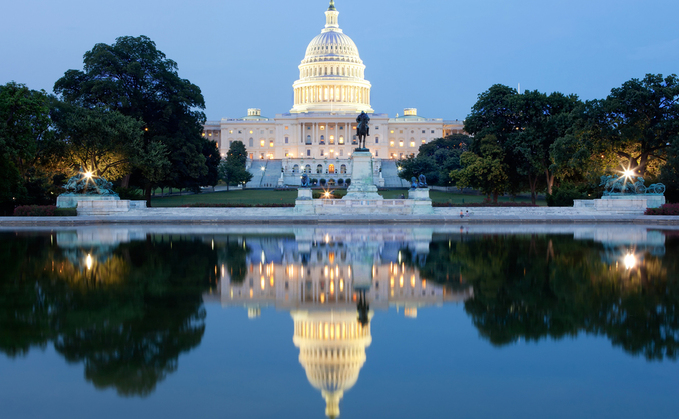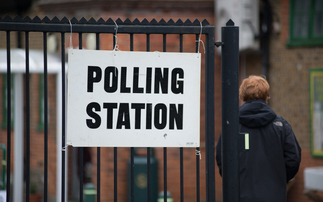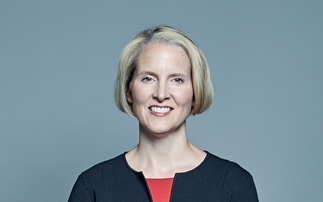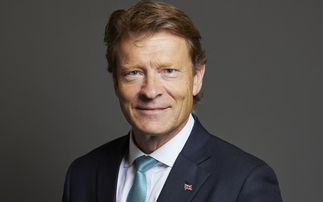
President Trump is back in the White House, and the strategies that largely worked in pushing back against his attempts to derail global climate action feel underpowered this time around
The optimistic case to be made for the Trump presidency is easy to sketch out, not least because it has been done before.
Just as in 2016, there is comfort to be found in the argument Trump's departure from the Paris Agreement will not derail global mega-trends in favour of decarbonisation. That his worst policy proposals and authoritarian instincts will be constrained by Congress and the courts. That the volatility of his 'mad bastard' persona will convince Putin, Xi, et al that American red lines are best not crossed.
This optimistic outlook is further reinforced by the way Trump's first term did indeed cleave to some of the better case scenarios. He may have been a disgrace to the office long before he openly attempted to overturn the results of a democratic election. He may have engaged in naked corruption, catastrophically mismanaged the covid pandemic, and had children locked in cages. But - and this is a big part of his return to office - the economy ticked along nicely, he projected American power, and the US avoided a major conflict.
Consequently, Trump's immediate move to quit the Paris Agreement, declare a National Energy Emergency, and threaten a fusillade of new tariffs has prompted a response of 'don't panic' from world leaders, businesses, and campaigners. Disappointment has been expressed, but there has also been a broadly optimistic narrative that other countries will now pick up the slack and drive forward the next phase of the Paris Agreement, just as happened last time around. That clean tech deployment will continue, even if US fossil fuel production increases. That arguments for free trade can still win out and trade deals can be done with a transactional White House.
The problem is that this time feels very different. The team around Trump is more organised, more ruthless, and more shameless, right up to the point where the President's main benefactor was seen yesterday delivering what looked like fascist salutes from the stage. Whether this was a manifestation of edgelord provocation or actual Nazism is very much besides the point.
The open talk of "taking back" Panama sends a clear signal to authoritarian imperialists everywhere that Trump has even less interest in international rules and diplomatic niceties than he had during his first term. A global trade war seems inevitable and a cold war highly likely. A hot war could soon follow.
Trump can also call on a wider network of international allies and acolytes than he had previously. Italy, Hungary, Austria, and Argentina all boast recognisably Trumpist governments. Elections are due in Australia and Canada where right wing and increasingly populist parties are hot favourites to return to power. Trump can rely on substantial support from parts of the British Conservative Party, Nigel Farage's Reform, and swathes of the media. The chances of other major economies following the US out of the Paris Agreement are much bigger now than they were in 2016. The risk of contagion is real. It is notable world leaders have offered only the most gentle of criticism of Trump's attempt to torpedo arguably the most importance multilateral achievement in decades.
Meanwhile, the pro-fossil fuel policy programme being pursued by the Trump White House is much more effectively targeted than it was in 2016. The initial wave of executive orders was highly choreographed and designed to have maximum impact. The decision to declare a National Energy Emergency at a time when the US is the largest oil and gas producer in the world and pump prices are falling was an act of evil genius. It also served to highlight the thermonuclear levels of naivety contained in President Biden's decision not to declare a climate emergency for fear of setting a dangerous precedent for the next Republican president.
Everything is now lined up in support of the fossil fuel industry. Federal lands and waters are to be opened up, emergency powers will be seized to ram through new projects, environmental protections will be watered down. Renewables will not even be classified as an "energy resource", as the federal government's focus shifts wholesale towards supporting oil, gas, and coal, with some love for nuclear, hydropower, and biofuels at the margins. Crucially, on the demand side of the equation electric vehicle mandates and energy efficiency standards will be scrapped in a bid to ensure demand for fossil fuels is sustained.
The courts and some states will try to resist these policies, but Trump stacked the Supreme Court for a reason and Biden declined to do anything about its overtly partisan nature. The US fossil fuel boom is about to get louder still.
It is here that the big fear for global decarbonisation efforts lies. For years the theory of change adopted by governments and businesses is that if you can make clean technologies competitive then demand for fossil fuel will be gradually destroyed, emissions will peak, fossil fuel assets will become stranded, and market forces will make a net zero emission economy inevitable. It is a hypothesis that still has a lot to recommend it, but Trump's actions yesterday demonstrate how illiberal and climate denialist governments can move to both ramp up fossil fuel supplies and guarantee fossil fuel demand, even as clean technologies become competitive and the risk of fossil fuel assets being stranded becomes obvious. It may be irrational, anti-science, and counter to market forces, but oligarchs never really believe in markets, regardless of what they say to the contrary.
There is no point pretending Trump represents anything other than a grave threat to global climate action that is even more severe now than it was back in 2016. But equally, there is no viable response that does not run through much the same playbook that proved at least partially effective last time.
Governments and businesses need to recognise that denying climate impacts does not make them go away, that the only sustainable solution to the global climate crisis is to get to net zero emissions, and that clean technologies need to be delivered at pace and scale to ensure demand for fossil fuels falls sharply. That task becomes considerably harder if rogue governments try to put a floor under fossil fuel demand - and it is a tragedy the US is now one of those governments - but the mission remains the same. Real politik and climate realities mean there may need to be a bit more focus on climate adaptation, energy cost reduction, and carbon removals compared to last time, but the urgent need to get to net zero emissions as fast as possible has not changed. The public should ultimately reward governments that protect them from higher energy costs, polluted air, and rolling climate crises, even if Trump secured a narrow victory this time around.
The only way to ensure Trump and his pollutocrat allies end up on the wrong side of history is to keep doing the work that will push them there.









